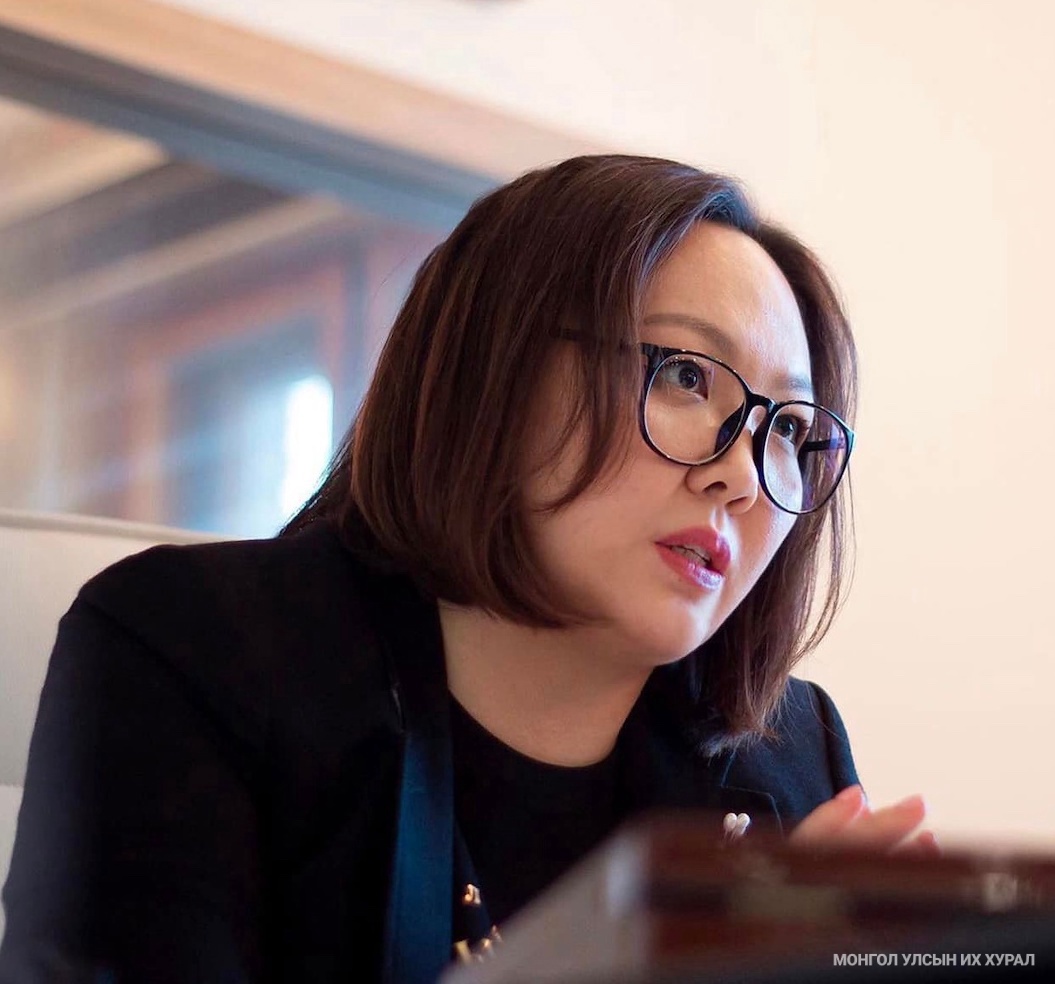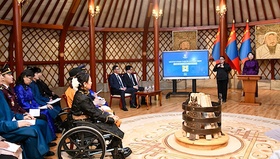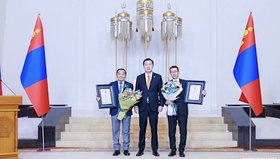We had a conversation with Member of the State Great Hural (Parliament), Chairwoman of the Democratic Women’s Union, and member of the Asian Women Parliamentarians’ Group, Jargalan Batbayar.
– First of all, congratulations on initiating and proposing to host the Asian Women Parliamentarians’ Assembly in your home country.
– Thank you. The Asian Women Parliamentarians’ Assembly will be held in Ulaanbaatar, the capital of Mongolia, from 15 to 17 September 2025. The State Great Hural (Parliament) of Mongolia is the main organizer and host of this international event.
– Could you tell us about the Asian Women Parliamentarians’ Group and its activities?
– The Asian Women Parliamentarians’ Group was informally established in 2011 and became formally organized in 2014. It brings together female members of Asia’s center-right political parties. Each year, the Group holds an assembly in one of its member countries on a specific theme. Its purpose is to strengthen democracy, exchange experiences, reinforce inter-parliamentary relations, and expand regional cooperation.
– What are the expectations from the conference? What issues will be discussed?
– The theme of this conference was proposed by our side and will be conducted under “Promoting Gender Equality through Economic Empowerment: Policies for a Sustainable Future.” In other words, the discussions will cover women’s participation in the labor market, budgetary policies, access to artificial intelligence and digital finance, the valuation of care work, entrepreneurship, access to financing, as well as the role and participation of parliaments. The conference will explore ways to eliminate entrenched perceptions and practices, such as equal pay for equal work, recognizing unpaid care work, and gender-responsive budgeting. Moreover, it will provide a platform to share Mongolia’s best practices in enhancing women’s decision-making participation, particularly through constitutional amendments and the increase of women’s candidate quotas in the laws governing elections to the State Great Hural (Parliament).
– It is said that female legislators from 13 countries will attend. Will there be many guests?
– Delegates are coming from Japan, Bangladesh, South Korea, Sri Lanka, Thailand, Maldives, the Philippines, Malaysia, Bhutan, Nepal, India, and Singapore.
– Mongolia has made significant progress in women’s rights to vote and be elected. In terms of sustainable development policy, what should the country prioritize and incorporate?
– Our country is now recognized as one that has made notable achievements in increasing women’s political participation, which has significantly contributed to and encouraged hosting this event at home. Mongolian women have historically maintained high levels of social and political engagement, which is linked to our historical traditions and social characteristics. However, while other indicators are strong, participation at the decision-making level remains relatively low. Other countries have observed that we have supported women through policy measures, including constitutional amendments and electoral law reforms. According to research, while Mongolia was ranked 129th out of 190 countries in terms of women’s representation in parliament by the Inter-Parliamentary Union, following the 2024 elections—where 32 women took office—it advanced by 27–30 places. This raised Asia’s average gender equality level in parliament to 26.9%, approaching the global average.
– Today marks the 35th anniversary of Mongolia’s permanent parliament, and Asian female parliamentarians are visiting the country. Does this underscore the need to increase women’s participation at decision-making levels?
– Yes, this is one of the issues we consider important to address. In the 35-year history of our permanent parliament, only a few women have been elected and served as members. Women who have served as MPs rarely have the opportunity to be re-elected. Research shows that various economic, social, and other factors contribute to this situation.

 Eng
Eng  Монгол
Монгол


